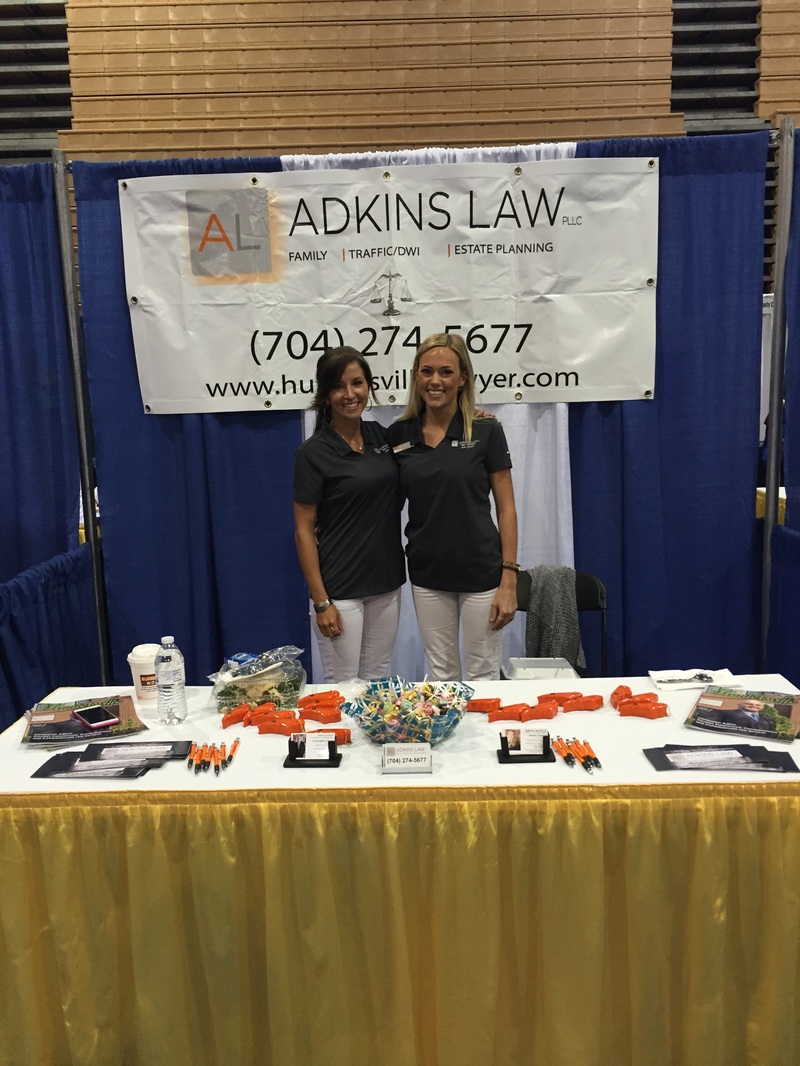 During a divorce, or in contemplating a divorce, often one spouse will spy on the other spouse. This spying may take place by hacking into your email account, installing a GPS tracker on your vehicle, or intercepting your text messages. While this may seem tempting when instances of infidelity are suspected, there may be serious criminal and civil consequences for taking such actions. Criminal Penalties for Spying on Your Spouse Certain types of spying, such as hacking into your spouse’s email account and reading stored communications, are violations of state and federal law. If, for example, your spouse is found guilty of violating the Federal Wiretapping Act, a judge can order your spouse to stop the illegal acts, fine your spouse for the violations, or sentence your spouse to prison. Additionally, under the North Carolina Electronic Surveillance Act, your spouse may be convicted of a felony. Damages in those cases may be in the form of actual damages (up to $1000.00), punitive damages (to punish your spouse), and an award of attorney fees. Civil Penalties for Spying on Your Spouse In North Carolina, if your spouse has been spying on you, you may file a civil action for invasion of privacy. North Carolina case law has defined such a tort as follows: “One who intentionally intrudes, physically or otherwise, upon the solitude or seclusion of another or his private affairs or concerns, is subject to liability to the other for invasion of his privacy, if the intrusion would be highly offensive to a reasonable person.” Invading another’s privacy may occur if your spouse has wiretapped you or unlawfully gained access to your email, placed video cameras or otherwise spied on you in a place where you have a reasonable expectation of privacy, gained unauthorized access to your bank accounts, and opened your personal mail. If you would like to speak with a domestic attorney in regards to spousal spying or invasion of privacy, contact Adkins Law. Adkins Law is located in Huntersville, and primarily serves Mecklenburg County and the Lake Norman area.
259 Comments
 Before you begin to discuss divorce with your spouse, it is important to consider taking steps to safeguard your assets. Once you move out of the marital home, your spouse may begin liquidating assets such as furniture, vehicles, collectibles, cash, and other items of personal property. It is important to take possession of these items during the separation, or before you move from the marital home, or you risk losing them. It is also possible to apply to the court for an injunction, which restrains your spouse from transferring or otherwise disposing of certain property. Such a restraining order can allow for items of separate property to be returned to you, and prevent your spouse from disposing of marital property before reaching a final resolution on the property issues. If you and your spouse own real property, it is possible to file a lis pendens, which is a notice of a pending action. The lis pendens will put third parties on notice of your claim to an interest in the real property. If such a claim is properly recorded and served, it will cloud the title to the property, and prevent your spouse from attempting to sell it without your knowledge or permission. You may also want to take steps to protect yourself by closing joint credit cards and joint bank accounts, opening bank accounts in your own name, and changing all utilities and other bills into the responsible party’s name. Failure to do this can lead to several headaches and unpaid bills down the road, which may also affect your credit. If you would like to speak to a divorce attorney regarding equitable distribution and the safeguarding of assets before a divorce, contact Adkins Law. Adkins Law is located in Huntersville, and primarily serves Mecklenburg County and the Lake Norman area.  In 2011, North Carolina enacted a law compelling abortion providers to display and describe a fetal ultrasound to the mother before performing an abortion. The law made no exceptions for pregnancies involving rape, incest, health risks, or fetal anomalies. On Monday, in Walker-McGill v. Stuart, the United States Supreme Court held that requiring an ultrasound before allowing an abortion was an unconstitutional violation of the First Amendment. While the State argued that women should be fully informed about the abortion procedure and what it entails, the Supreme Court determined that the ultrasound law was medically unnecessary and a violation of free speech. Several other related cases are currently pending before the Supreme Court, including a case out of Texas requiring abortion clinics to have admitting-privilege requirements and ensuring abortion clinics meet ambulatory surgical clinic standards. Although a Federal Circuit Court recently upheld the Texas law, several pro-choice groups have stated they will ask the Supreme Court to review the decision.  In North Carolina, you may seek a domestic violence protective order (DVPO) when someone you have or had a personal relationship with does one of the following: (1) Attempts to cause bodily injury, or intentionally causes bodily injury; (2) Places you or a member of your family or household in fear of imminent serious bodily injury; (3) Continued harassment that rises to such a level as to inflict substantial emotional distress; OR (4) Commits rape or a sexual offense. Someone you have or had a “personal relationship” with includes: (1) Your spouse, or ex-spouse; (2) A person of the opposite sex with whom you live or used to live; (3) Someone you are related to, including parents, grandparents and grandchildren, over the age of sixteen; (4) Someone with whom you have a child in common; (5) A current or former household member; OR (6) Someone of the opposite sex whom you are dating or have dated. There are two types of DVPOs: (1) An ex parte temporary protective order; and (2) A final domestic violence protective order. An ex parte temporary protective order is designed to provide you and your family with immediate protection. If a judge believes there is a serious and immediate danger to you or your family, an ex parte order may be issued, which will protect you until the court hearing on the final domestic violence protective order. This usually lasts for ten days, but can, on occasion, be continued to last longer. A final domestic violence protective order, also called a DVPO or a 50B, lasts up to one year. During this year, the abuser may not assault, threaten, abuse, follow, harass, or interfere with you. A DVPO may also grant you sole access to your home, possessions, pets, custody of your children, and spousal support. Once the one-year period is over, you may ask the court to extend the order for an additional year. DVPOs are powerful tools that can be used to protect you and your family from domestic violence. They may, however, also be used as a tool to get you out of the marital home and as leverage in a child custody dispute. Occasionally, a spouse will make false allegations of abuse in the hopes of being granted sole possession of the marital home and property, and custody of any minor children. While these situations are rare, you still must prepare and defend yourself against the allegations. If you would like to speak with a domestic attorney concerning obtaining or defending against a DVPO, please contact Adkins Law. Adkins Law is located in Huntersville, North Carolina and primarily serves Mecklenburg County and the Lake Norman area.  The North Carolina Supreme Court in State v. Knoll dismissed charges of impaired driving in three separate cases due to substantial statutory violations related to the setting of conditions of pretrial release that prejudiced the defendant’s ability to gain access to witnesses. In Knoll, the defendant was stopped at 1:15pm and charged with driving while impaired. He was transported to Intake where he provided a chemical analysis of his breath at 2:31pm. His breath alcohol concentration was found to be .30. Upon appearing before a magistrate, he was given a secured bond of $300. Between 4:00pm and 5:00pm, the defendant made several requests to call his father, and was finally allowed to call his father at 5:00pm. After speaking with the defendant, the defendant’s father spoke with the magistrate and told him that he wanted to come pick the defendant up immediately. The magistrate informed the defendant’s father that he could not pick up the defendant until 11:00pm. At 11:00pm, the defendant’s father came to the jail to post bond. The defendant’s father stated that when he spoke with the defendant over the phone, he appeared oriented and coherent, and not noticeably impaired. The Supreme Court found that the defendant’s confinement came during a crucial period in which he could have gathered evidence by: (1) having witnesses observe the defendant and form opinions of the defendant’s condition following the arrest, (2) lost the opportunity to secure independent proof of sobriety, and (3) lost the opportunity to secure a subsequent test for blood alcohol content. As such, the Supreme Court dismissed the driving while impaired charges against the defendant. After Knoll, to establish a basis for dismissing impaired driving charges based upon driving with an alcohol concentration that equals or exceeds the per se limit of .08, a defendant must (1) demonstrate a substantial statutory violation of his or her right to pretrial release, and (2) demonstrate that the defendant was prejudiced by the violation. Successfully establishing a prejudice is a high hurdle to meet and Knoll typically only permits the dismissal of impaired driving charges in extraordinary cases. If you would like to arrange a consultation with a DWI attorney, contact Adkins Law. Adkins Law serves Mecklenburg County and the Lake Norman area.  While using a tape recorder to catch your significant other in a lie may seem like a fairly simple task, it is important to note that there are certain restrictions on this behavior. North Carolina is a “one party consent” state meaning that at least one person in a conversation must know that it is being recorded. Essentially, this means that it is illegal to hide a tape recorder in the hopes of catching your spouse and someone else having a meaningful conversation. Hiding a voice-activated recorder without being present in the conversation causes a disruption to state and federal wiretapping laws. However, this law does allow you to record yourself and your spouse in a conversation because you know that it is being taped and so have given your consent. One party is aware that the recording is occurring therefore the recording is legal and could be admissible evidence in court. This evidence can be useful in cases dealing with cheating, issues with custody, domestic violence and more. All this being said, there is one exception to this state law. This exception is known as vicarious consent and refers to recorded conversations between your spouse and your children. If the safety of your children is in question, then recorded conversations involving them, even if you are not there, might be allowed. Since you are responsible for the wellbeing of your children, tape recording may be legal even if none of the parties has given consent. However, there must be substantial evidence proving to a judge that your children were in danger in order to justify the use of a hidden tape recorder. If you need to speak with an a family law attorney concerning spousal spying, contact Adkins Law to arrange a consultation.  Often, when someone suspects their spouse of infidelity, they attempt to hack into their email account to confirm their suspicions. While this seems tempting, it is likely illegal and can lead to serious consequences. The Electronic Communications Privacy Act of 1986, The North Carolina Electronic Surveillance Act, and N.C. Gen. Stat. § 15A-287 all protect against spousal spying and unauthorized access of email and stored communications. Of key importance, the access must be unauthorized. Spouses often give their passwords to each other, or don’t protect their email accounts on joint computers, so that they may access important documents and other communications for each other. Giving your spouse permission to access your email for these purposes is legal and acceptable. If a spouse, however, exceeds the permission you have provided them, and accesses your email account beyond the scope of your permission, they may have violated the law, and the stored communications may be protected. Even if access is unauthorized, the electronic communications that your spouse has accessed must likely be held in electronic storage for the law to protect you. An email that is stored on a computer’s hard drive, for example, may not have the same protections as an email that is saved in your Internet Service Provider’s account such as Gmail, Yahoo, or Hotmail. Emails that are stored in your Internet Service Provider account are considered electronic storage and are protected against unauthorized access. If your spouse has hacked into your email account and retrieved stored communications without permission, you may have an action against them for invasion of privacy. If you wish to discuss spousal spying or potential invasion of privacy claims, contact Adkins Law to arrange a consultation.  In North Carolina, your driver’s license can be suspended for a number of reasons. The suspension period will vary based on the reason for the suspension. Commonly, people have their licenses suspended for failing to pay fines, speeding and reckless driving convictions, and DWI / DUI. You may also have your license suspended for failing to pay child support. If your license is suspended, you will receive notification from the NC DMV. At that time, you may be able to request an administrative hearing to attempt to reinstate your license. Administrative hearings are not guaranteed and are granted depending on the reason for the suspension. Upon requesting a hearing, you will retain your driver’s license and privilege to drive until you have the hearing. If you wish to request a hearing, or if you would like to find out if you are eligible to have a hearing, you can contact the NC DMV’s hearing office by phone or mail. North Carolina Department of Motor Vehicles Driver License Hearings 3116 Mail Service Center Raleigh, North Carolina 27699-3116 (919) 715-7000 Additionally, it’s important to note that if you lose your NC DMV hearing, you are able to appeal the decision of the first hearing to the North Carolina Superior Court if the appeal is made within thirty days. If you would like to speak with a Huntersville traffic attorney concerning a suspended license in Huntersville, North Carolina, please contact Adkins Law to arrange a consultation. Adkins Law at the 2015 Lake Norman Business Expo.
|
Archives
January 2022
|
Lake Norman Location
9620 Sherrill Estates Road
Huntersville, North Carolina 28078
(704) 274-5677 main
(704) 231-5762 text
(877) 208-7577 fax
9620 Sherrill Estates Road
Huntersville, North Carolina 28078
(704) 274-5677 main
(704) 231-5762 text
(877) 208-7577 fax



